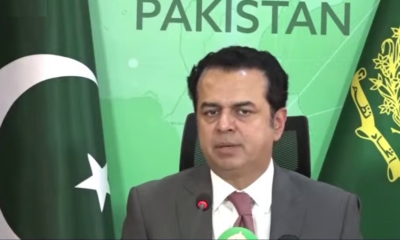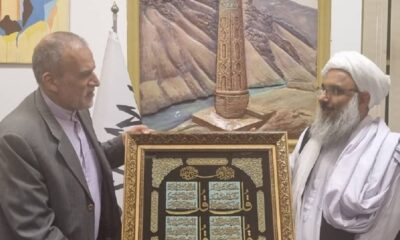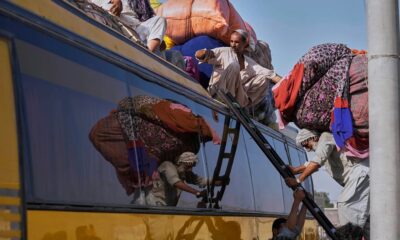Latest News
Shah wa Arus dam inaugurated in Kabul
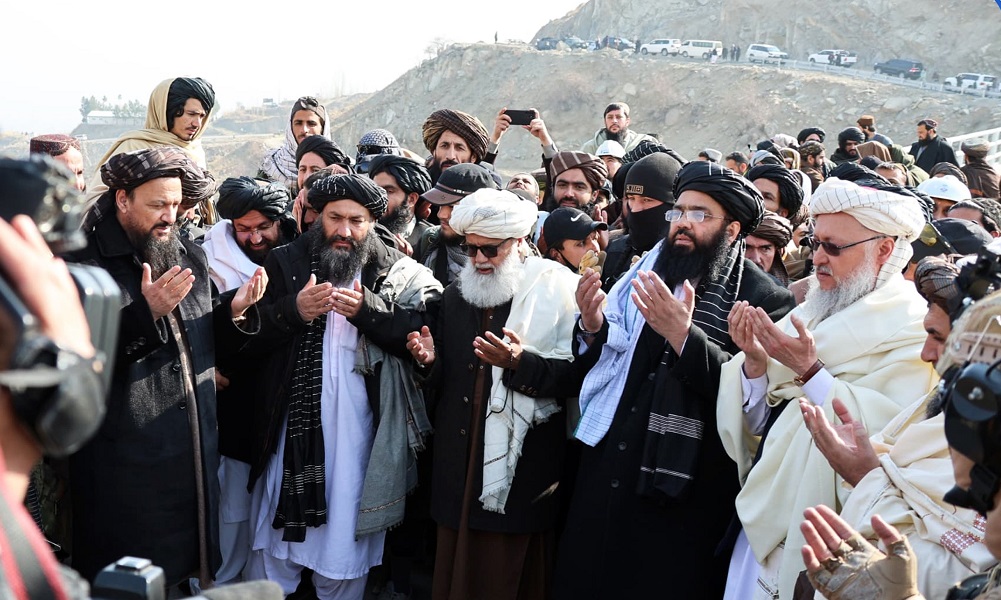
The Ministry of Energy and Water announced on Tuesday that the Shah wa Arus dam project in Kabul’s Shakardara district has officially been inaugurated.
The ceremony, attended by senior officials from the Islamic Emirate of Afghanistan (IEA), marks a significant milestone in the country’s efforts to improve water management and provide sustainable resources for its citizens.
The dam, valued at approximately $53 million, was constructed by the Ministry of Energy and Water with the dual objectives of enhancing water management and supplying drinking water to Kabul’s residents. The project is seen as a critical step in addressing the capital’s water scarcity challenges.
Several high-ranking IEA officials attended the inauguration ceremony, including Mawlawi Abdul Kabir, Deputy Prime Minister for Political Affairs; Mullah Abdul Ghani Baradar, Deputy Prime Minister for Economic Affairs; Abdul Salam Hanafi, Deputy Prime Minister for Administrative Affairs; and Abdul Latif Mansour, Acting Minister of Energy and Water.
Baradar emphasized the critical importance of water management, highlighting that it is a key priority for the Islamic Emirate. He stressed that the effective management of water resources and the development of energy infrastructure are crucial for the country’s future prosperity.
In his speech, Baradar underscored the growing value of water as a key economic asset in global politics, stating, “Water is increasingly recognized as a vital economic factor in international relations. In some countries, its value exceeds that of oil and precious minerals.”
He also acknowledged Afghanistan’s challenges due to years of conflict and limited investment in water infrastructure. “Unfortunately, due to the wars and various internal and external factors, Afghanistan has not made the necessary investments in managing this precious resource,” Baradar explained. “As a result, seasonal rains and climate change have led to frequent flooding, causing significant damage and loss of life.”
Mawlawi Abdul Kabir described the completion of the Shah wa Arus dam as a clear demonstration of the Islamic Emirate’s commitment to the nation’s development. He called the project a symbol of the IEA’s determination to promote prosperity and improve the lives of Afghan citizens.
Abdul Salam Hanafi also praised the dam’s completion, calling it a significant step forward in the country’s water management efforts. “This project reflects our ongoing commitment to ensuring the sustainable use of water resources for the benefit of the people,” he said.
Abdul Latif Mansour, the Acting Minister of Energy and Water, further highlighted the broader vision for Afghanistan’s water and energy sectors. He noted that the leadership of the IEA has already approved plans for four additional major dam projects, including the Lalander Shatoot Dam, which is set to begin construction next year.
The Shah wa Arus dam stands at a height of 77 meters and has the capacity to regulate 30 million cubic meters of water annually. This will allow for the irrigation of 2,700 to 3,500 hectares of agricultural land and provide 5 million cubic meters of drinking water for Kabul. The dam is also capable of generating 1.2 megawatts of electricity, further contributing to Afghanistan’s energy needs.
This project is expected to have a far-reaching impact on both the environment and the livelihoods of thousands of Afghan families, particularly in the areas of agriculture and clean water access.
Latest News
No new deadline will be given for Afghan refugees: Pakistani official
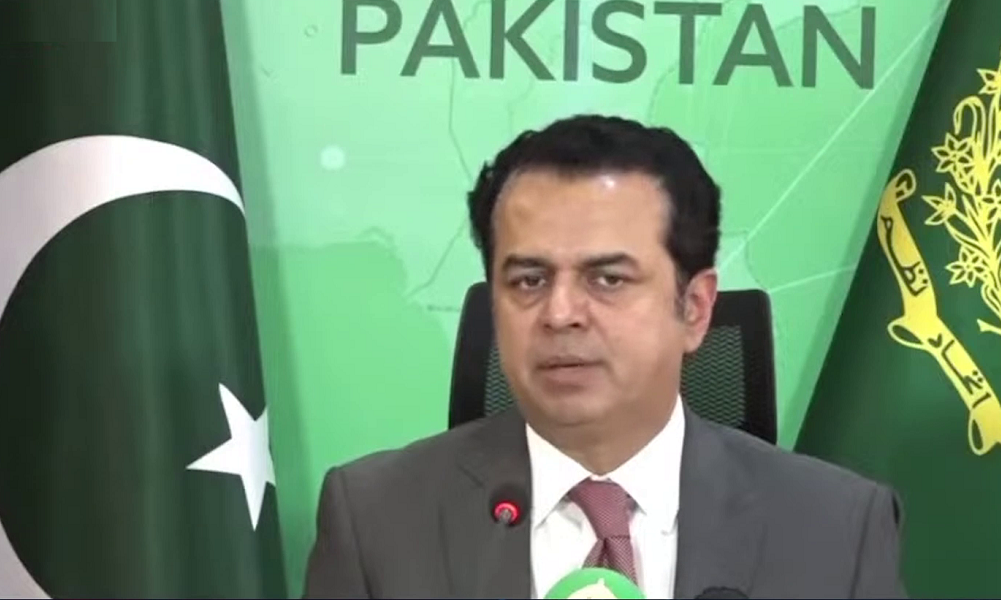
Pakistan’s Deputy Minister of the Interior Ministry, Talal Chaudhry, says a new deadline will not be granted for Afghan refugees to leave the country. He stated that the process of returning undocumented migrants to Afghanistan is ongoing and that no new extension for their expulsion will be considered.
According to him, over 800,000 Afghan migrants—some of whom even held ACC cards have been deported so far.
“Those who only have the “ACC” cards or any other type of card are being sent back to their country. Since October 30, 2023, more than 800,000 people have been deported, and in the past few days alone, 11,000 individuals with ACC cards were returned to Afghanistan. This process will continue. As for asylum seekers being transferred to other countries, they have until the end of April this year—a deadline which will not be extended,” he added.
Meanwhile, Acting Minister of Refugees and Repatriation, Mawlavi Abdul Kabir, during a meeting with Robert Chatterton Dickson, the British chargé d’affaires for Afghanistan, stated that Pakistan has intensified the forced deportation of migrants in violation of international laws and norms.
He emphasized that addressing the situation of these migrants requires increased support from the international community.
In this meeting, Dickson also said that the UK has added more than seven million pounds to its humanitarian aid to provide additional support for the Afghan migrants.
Latest News
Iranian economic delegation visits western Afghanistan
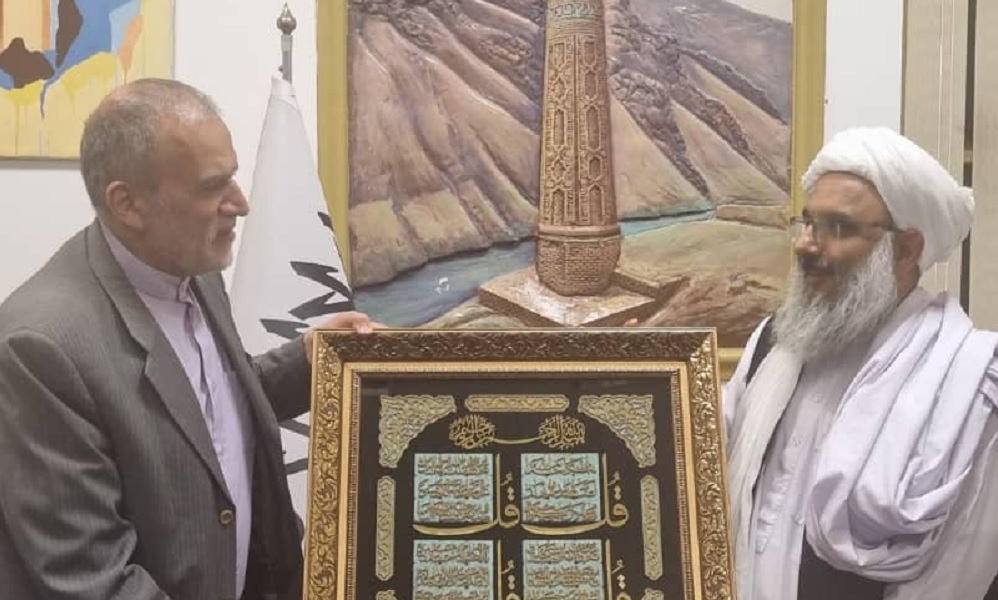
An Iranian economic delegation has visited Afghanistan’s bordering province of Herat and held talks with local officials about expanding trade with the country.
The delegation is headed by Iran’s Deputy Foreign Minister for Economic Affairs Rasoul Mohajir, and comprises Deputy Minister of Planning and Resource Management of the Ministry of Roads and Urban Development and the Governor of South Khorasan Province.
The Iranian embassy in Kabul said the delegation visited the Khaf-Herat railway and the industrial township of Herat, met with the provincial governor and a group of businessmen and discussed the expansion of trade between the two countries.
After Herat, the delegation will also visit Farah province to discuss ways to develop bilateral cooperation and facilitate the transportation of goods between Iran and Afghanistan.
Latest News
IEA publicly executes four individuals found guilty of murder

The Islamic Emirate of Afghanistan (IEA) on Friday publicly executed four individuals after they were found guilty of murder, the Supreme Court has announced.
Two were executed in Badghis province and two in Nimroz and Farah.
One of them had killed three people and the other three murdered one each, according to the court.
The court said that families of victims had been requested to pardon the murderers, but they didn’t accept it.
-
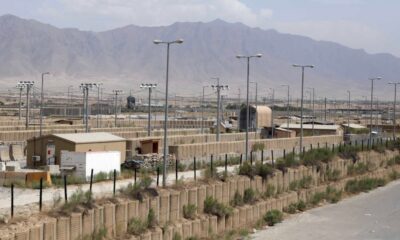
 Latest News4 days ago
Latest News4 days agoIEA rejects reports of US military planes landing at Afghanistan’s Bagram Air Base
-

 Latest News4 days ago
Latest News4 days agoTrump’s tariff pressure on Afghanistan ‘will impact economic growth’
-
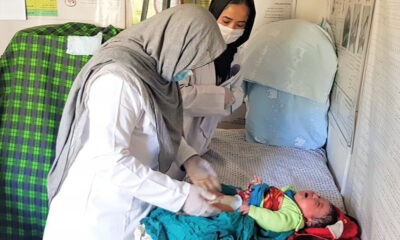
 Health4 days ago
Health4 days agoAid cuts could leave more women dying in pregnancy and birth, UN says
-

 Regional4 days ago
Regional4 days agoIran-backed militias in Iraq ready to disarm to avert Trump wrath
-
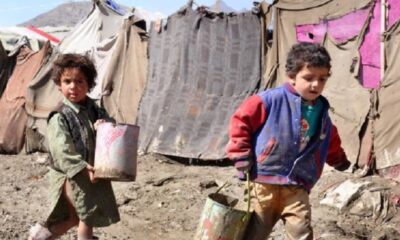
 Latest News4 days ago
Latest News4 days agoUN urges donors to keep up critical support for Afghanistan
-

 Latest News3 days ago
Latest News3 days agoItaly to welcome 700 Afghan refugees for resettlement
-

 Regional3 days ago
Regional3 days agoUS discusses tariffs, critical minerals, immigration with Pakistan
-
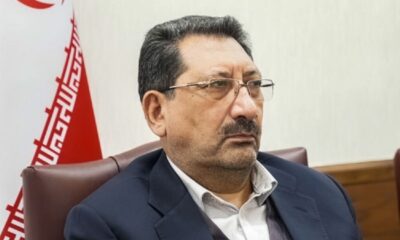
 Latest News4 days ago
Latest News4 days agoIran’s minister of trade and industry expected to visit Afghanistan




